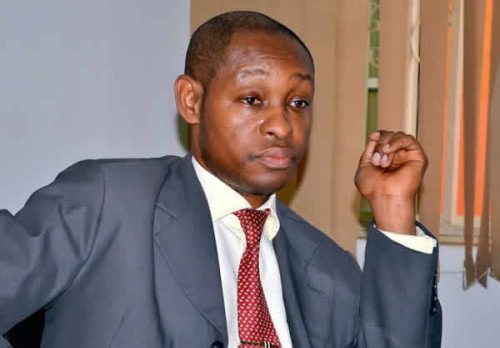National Issues
Fuel subsidy: Steps for incoming administration -By Eze Onyekpere
The next administration should fully implement the Petroleum Industry Act with all its reforms including the removal of fuel subsidy, creating and improving domestic refining capacity as well as introducing accountability and transparency while removing opacity in the sector.

The unending challenge of fuel subsidy, long fuel queues and the attendant overwhelming corruption associated with the subsidy has defied common sense and the logic of reason. The implementation of the subsidy regime remains a horror scenario for over 99.9 per cent of the population. It is bad for the fiscal regime, bad for motorists who suffer endlessly and it deters economic and social development. This discourse reviews the extant scenario, the background facts and proffers a way forward for the next administration. The recommendation is for the next administration because the current regime appears incapable of implementing any reforms.
A starting point is Major General Muhammadu Buhari (retd.), the current president of Nigeria, during the presidential campaign days in 2014 denying the existence of fuel subsidy. He rhetorically asked, “who is subsidising who?” He magisterially declared the subsidy regime a fraud. Considering that he had been a minister of petroleum resources before as well as a former head of state, it was easy for Nigerians to be hoodwinked to believe him. This was against the background of the reported massive subsidy fraud in the importation of petroleum products and payment of subsidies to marketers during the administration of President Goodluck Jonathan. The fraud in the subsidy regime was validated by several probes including those instituted by the Senate and House of Representatives as well as the executive. Some marketers were prosecuted and others were asked to refund several billions of naira to the treasury. The subsidy claims, which led to the probes was based on 35 million litres a day. The pervasive feeling at the time was that Nigeria may have been consuming about 25 million to 30 million litres of petroleum products every day and the remaining five to 10 million was just used to settle the “boys” in the perverse corruption racket of the then ruling Peoples Democratic Party.
Upon assumption of office, Buhari reserved the position of the substantive petroleum minister to himself and merely appointed a minister of state in the sector. This was within the exercise of his presidential powers as the president reserves the constitutional right to appoint or select who becomes a minister or the decision not to appoint a minister over any sector of economic and social life. Furthermore, this appeared to be a welcome relief considering the claim that he was an anti-corruption crusader and had been elected to right most of the wrongs plaguing Nigeria. There were high hopes that he was going to expose the deceit called petroleum subsidy and ensure that the sector starts working on the principles of honesty, integrity, professionalism and international fit and good practices.
Instead of proving that the subsidy regime was a fraud as he asserted before assumption of office, he continued the subsidy regime. He has now driven the subsidy regime to new heights that could not have been imagined before he assumed office. Nigeria now pays subsidy on 65 million litres of petroleum products a day and indeed paid subsidy for over 100 million litres in a month during the 2021 fiscal year. There are clear implications for the subsidy regime under the watch of Petroleum Minister Buhari. The first is that his pre assumption of office talks were based on unpardonable ignorance. He needed to have studied the subsidy scenario in 2014 before making such a pronouncement and hoodwinking Nigerians. Nigerians had expected that if he got into office and found that subsidy actually existed, he should have apologised to Nigerians for misleading them and stating exactly the subsidy facts as they were. This was the honourable path to follow. But he kept silent.
The second implication is that if there were empirical facts that proved fraud in the payment of subsidy on 35 million litres of PMS a day, today, there is overwhelming evidence to prove mind boggling fraud that is thrice the value of the pre-2015 fraud. The fact that we do not consume the quantum of PMS which we are subsidising has been asserted by the Nigerian National Petroleum Corporation, the Customs and other government agencies. The third implication is that the fuel subsidy regime has contributed immensely to Nigeria’s fiscal challenges. We now have a N4 trillion fuel subsidy appropriation request from the president, approved by the National Assembly and Nigerians are quiet, calm and suffering in silence. Despite the incredible scam in the name of subsidy, Nigerians still serve the punishment of unavailable petroleum motor spirit and long queues to get fuel. Unlike the president, before he assumed office, this discourse does not deny the existence of fuel subsidy but asserts that the quantum of PMS upon which the subsidy is claimed is scandalous and does not represent the actual quantum of PMS consumed in Nigeria.
Unfortunately, when the opportunity to stop the subsidy corruption came up upon the enactment of the Petroleum Industry Bill into law, the president chickened out and postponed the implementation of the subsidy removal part of the law until after he has left office. What a wonderful way to lead a country! And the intriguing aspect of the subsidy payment is that the Federal Government is borrowing to sustain the subsidy and its associated fraud contrary to the clear provisions of the Fiscal Responsibility Act which authorises borrowing only for capital expenditure and human development. The pertinent question will be: how and from where will the Federal Government raise the funds to pay back these scandalous debts?
This discourse, therefore, states the need for any future government after the 2023 elections to constitute a high-powered probe into the affairs of the NNPC after this regime exits power. The probe will determine the roles played by the extant managers of the sector in this grand looting of the treasury and plunging Nigeria into scandalous debt, poverty and misery for the majority of the population under the guise of fuel subsidy.
The president is the chief executive officer of the federation and the buck stops at his table. He has the power to hire and dismiss ministers who merely help him to achieve his goals and targets. If a minister fails in the discharge of his duties, it is a failure of the president’s administration in that particular sector. When as in the instant case, the president keeps a sector under his management and supervision, whatever happens in that sector is directly attributable to the president. This is not a case of vicariously liability but the state of the petroleum sector directly reflects the capacity and competence of the president.
The next administration should fully implement the Petroleum Industry Act with all its reforms including the removal of fuel subsidy, creating and improving domestic refining capacity as well as introducing accountability and transparency while removing opacity in the sector.

















